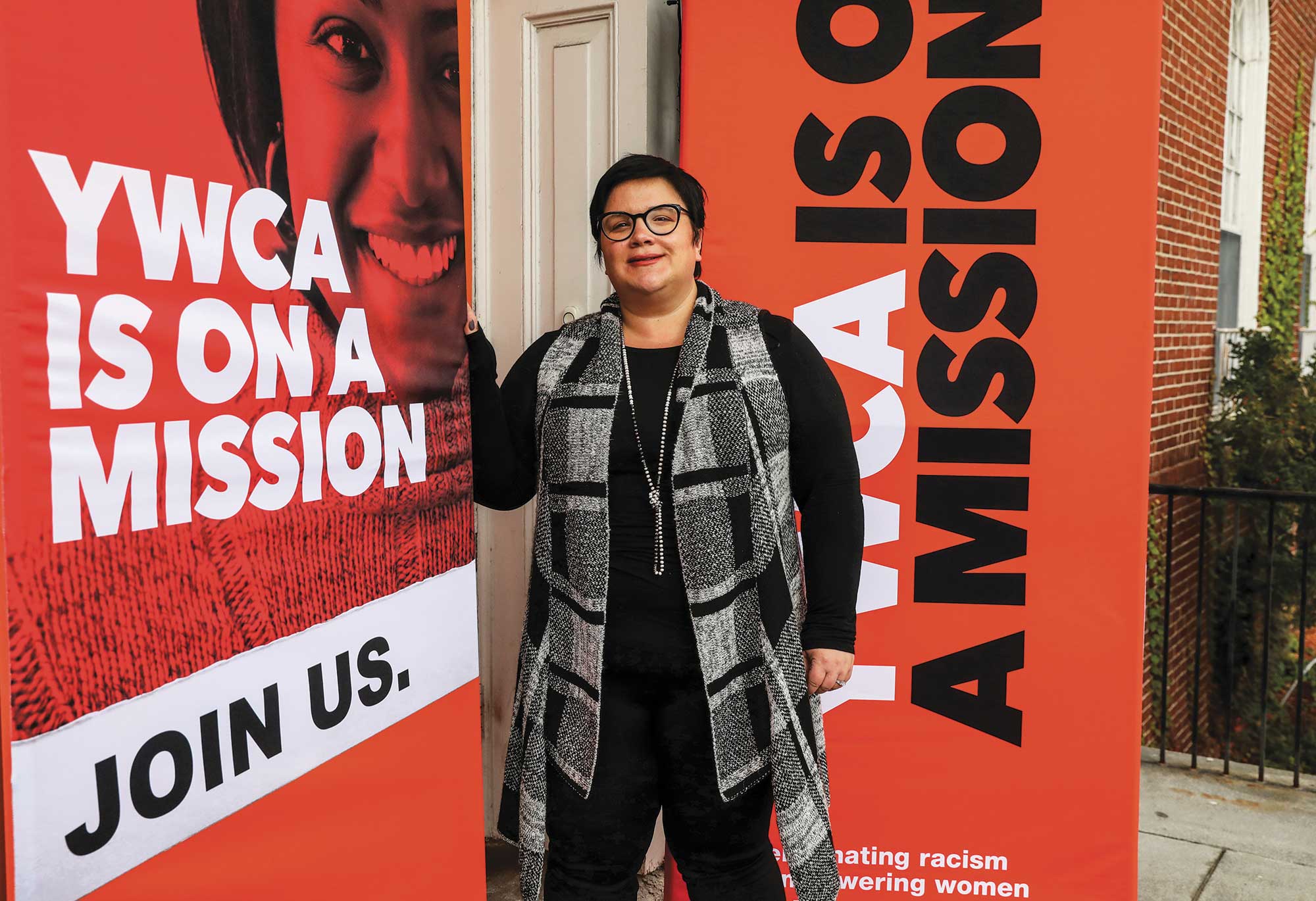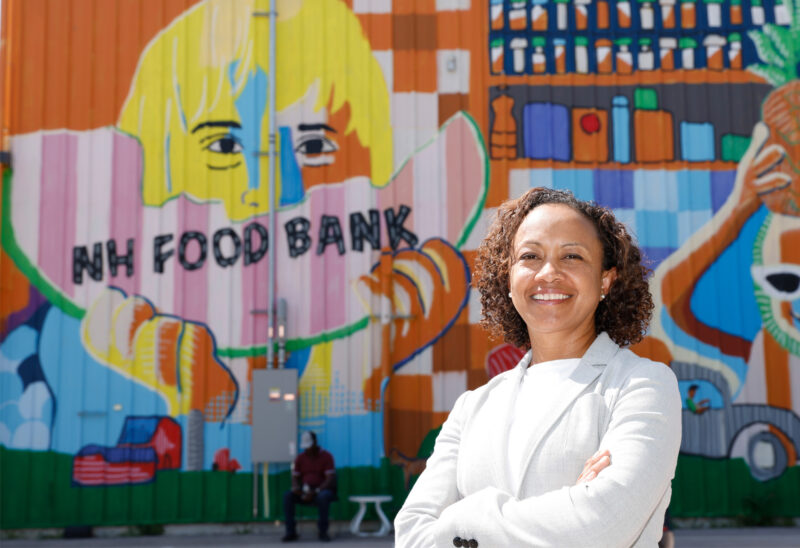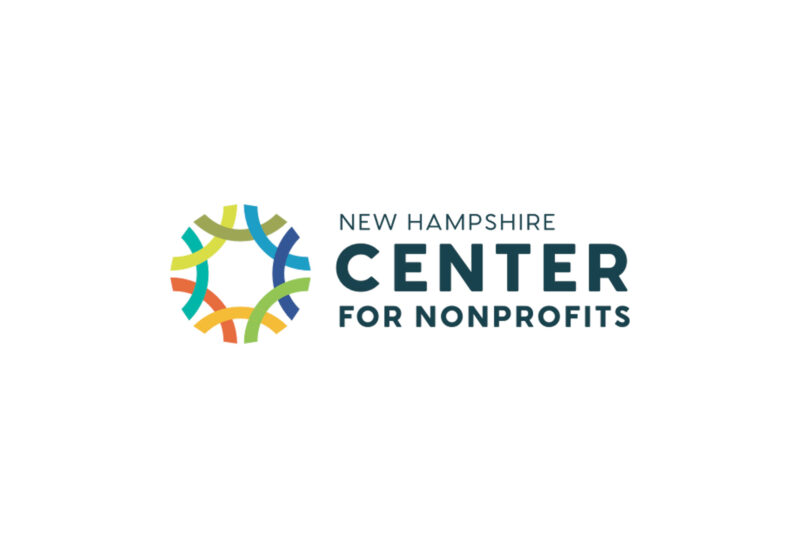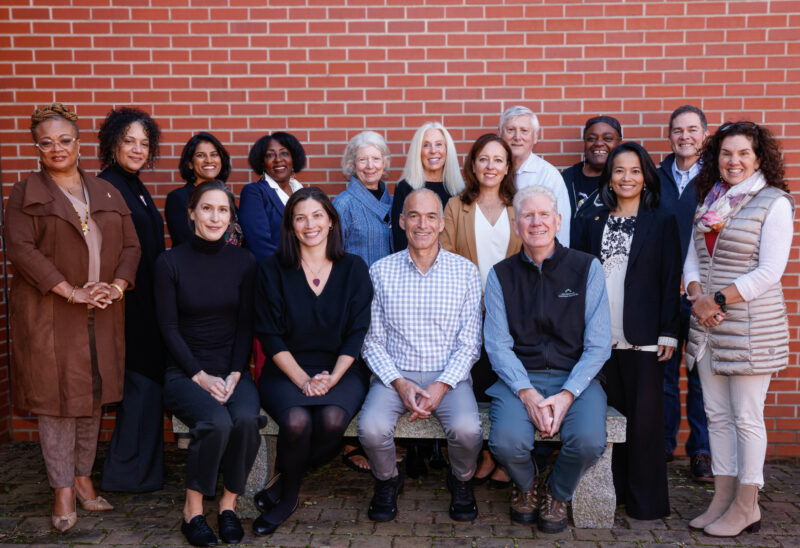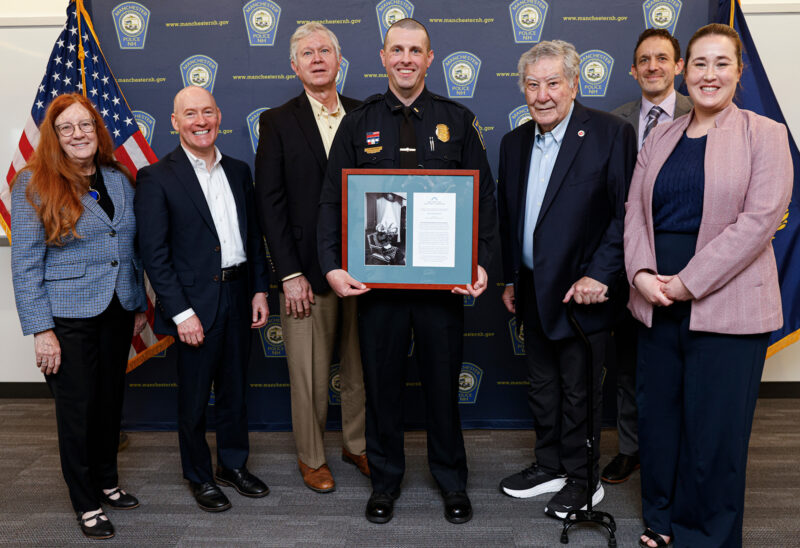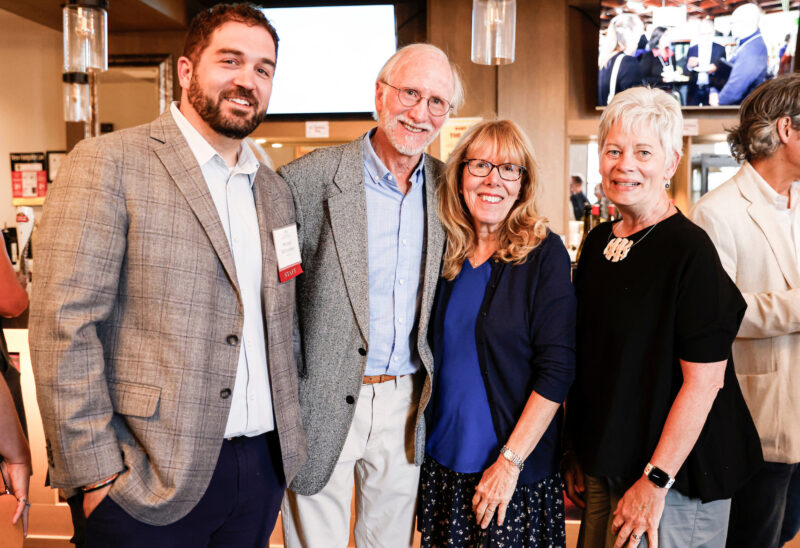Jessica Cantin is the CEO of the YWCA of New Hampshire. She spoke with the Foundation’s Lois Shea about the YWCA’s work to eliminate racism; empower women; and promote peace, justice, freedom and dignity for all.
LS: The YWCA adopted racial justice as part of its charter in the 1940s and eliminating racism became an explicit part of the mission in 1970. Why are eliminating racism and empowering women intertwined threads of the same mission?
JC: Because, over history, women and Black, indigenous and other people of color have been consistently marginalized, under-represented, have not been afforded the same pay or the same rights as white men. And essentially, when we are looking at social justice, what are the two prevailing social justice issues if you distill it down? It comes down to empowering women to continue to lift up their voices and eliminating racism — and really being bold about that.
On the state level, we really pivoted toward our racial justice work in the last 12 to 18 months. We are starting to build out those intentional relationships with partners like the Southern NH University Center for New Americans, which is housed in our center.
We have a full-time racial justice advocate working in the REACH Crisis Services center.
LS: The YWCA provides services for victims of domestic and sexual violence — including operating a shelter. What adaptations have you had to make due to COVID?
JC: We operate a crisis line, but during COVID you might have been quarantined with your abuser, so we had to get creative around incorporating web chat that would not be traceable. We had to advocate for practices in courts where folks could file a domestic-violence protection petition digitally or do an online process. And we have one of largest domestic violence shelters in New Hampshire. We couldn’t put everyone in there socially distanced, so we had to make adjustments.
LS: You were also filling gaps in basic needs.
JC: We were a recipient of a $10,000 COVID-relief grant from the Foundation, and we allocated that to the more vulnerable communities we serve. Families needed things like baby formula because traditional assistance programs were not taking appointments or were backed up because the need was so great. People needed diapers, help with utility payments. The grant allowed us to do biweekly distribution of hygiene items and activity kits for children at home, and household items like laundry detergent — things that might not seem very expensive to you or me, but if someone is counting their last pennies to get rent paid, can really eat into their budget.
LS: What is most urgently needed now, among the people you work with?
JC: At the top of the list is housing. In Manchester, housing is extremely expensive and inventory is really low. And then the basic needs like winter clothing. With all of the folks in need, we think strategically about it.
A lot of people just view us as a place where women go when they are in an abusive relationship, but that is not all we do. I would encourage people to get to know us more.
We’ve been at this for 100 years and the needs have just evolved.

